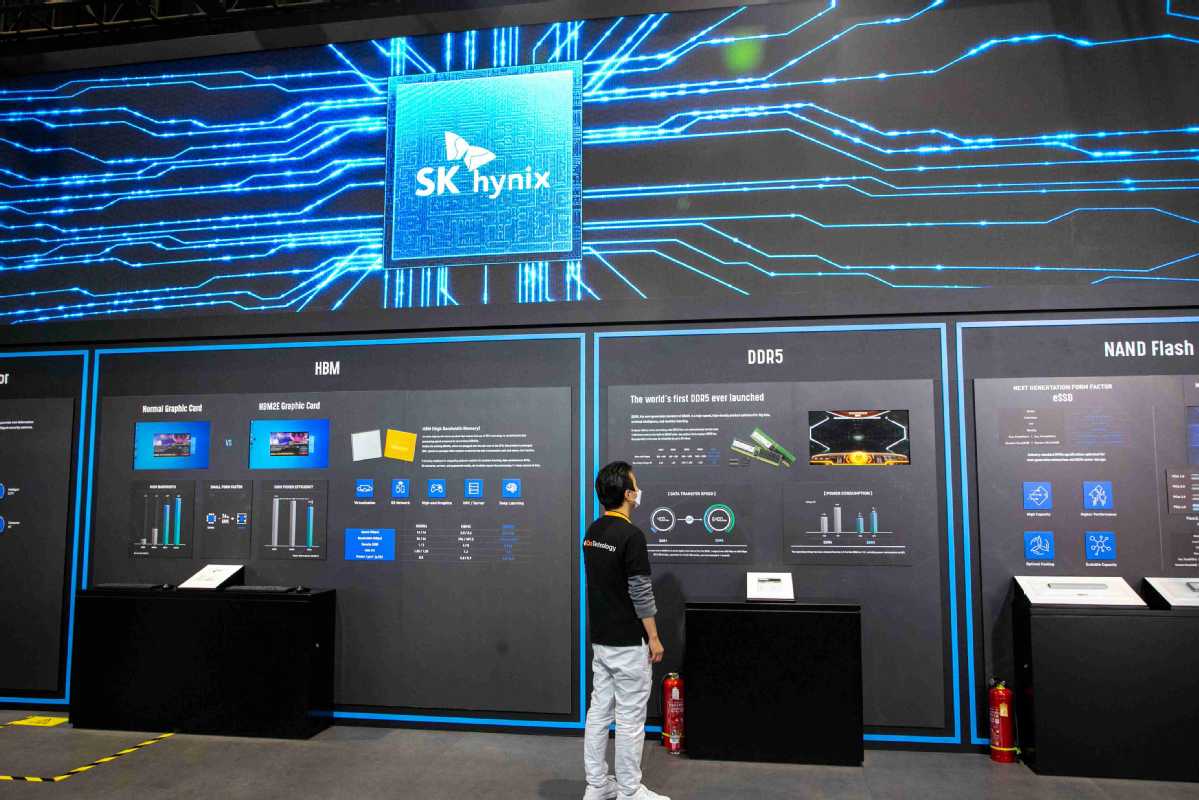Firms' woes in China sign US is hurting chip sector


The global semiconductor industry is experiencing a steep drop in demand, yet the US government is aggravating matters by weaponizing policy and politicizing business to prohibit companies from selling advanced chip products to the Chinese mainland, experts said on Wednesday.
The comments came after South Korean company SK Hynix warned of an "unprecedented deterioration" in memory chip demand, and said it could consider selling its memory chip production facility in the Chinese mainland in a worst-case scenario, if US export controls make it impossible to continue operations in the future.
Zhong Xinlong, a senior consultant at the Beijing-based China Center for Information Industry Development Consultancy, said SK Hynix's woes are the latest evidence of how Washington's politically motivated restrictions increase pressure on chip companies already struggling due to tumbling profits.
SK Hynix said its operating profit plunged 60.3 percent year-on-year in the third quarter as it was hit hard by weak global demand. The company also said it would slash investment in 2023 by more than 50 percent.
Kevin Noh, chief marketing officer of SK Hynix, said in a conference call on Wednesday that as a contingency plan, the company could consider selling its plant in Wuxi, Jiangsu province, if US export controls, in a worst-case scenario, make it impossible to continue operations in the Chinese mainland, according to a report in Japanese news outlet Nikkei.
"It's a contingency plan," Noh said. "We want to (continue to) operate without facing this situation."
He said SK Hynix "cannot help but suffer" due to the many limitations in running its Wuxi plant, which produces DRAM, or dynamic random access memory, chips.
DRAM chips are flash memory components used in smartphones, personal computers and servers. SK Hynix is the world's second-largest DRAM maker.
SK Hynix said earlier this month that it has received a one-year waiver from Washington to continue using US technology for producing advanced memory chips in the Chinese mainland. But it is not sure if the company can get it extended after the expiry period.
Taiwan Semiconductor Manufacturing Co, meanwhile, has also secured a one-year license to continue ordering US chip-making equipment for its expansion in the Chinese mainland, the company said earlier this month.
As the global chip industry enters "a cold winter", a senior executive from TSMC has encouraged employees to go on leave, which was interpreted as a negative, leading to a sharp drop in its share price.
Bai Ming, deputy director of international market research at the Chinese Academy of International Trade and Economic Cooperation, said Washington's politically motivated crackdown on the Chinese mainland's technology ambitions has far-reaching consequences, spreading ripples through the entire semiconductor industry.
And the impacts on global chip companies are uneven, and many semiconductor companies in Europe and South Korea unwittingly end up reaping the fallout, with their businesses suffering from material losses, Bai said.
"It's especially hard for them, as the chip sector is experiencing a sharp decline in demand," Bai said.



































